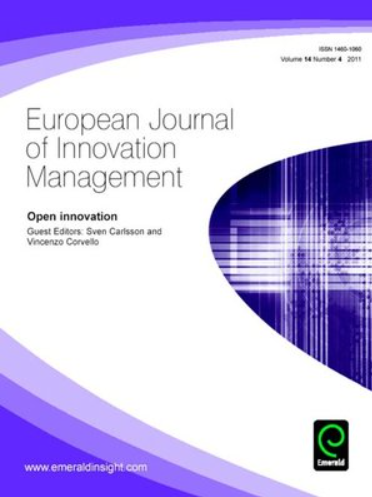数字化转型中的文化和技术:大公司如何更新并转变为生态系统企业
IF 5.7
3区 管理学
Q1 BUSINESS
引用次数: 0
摘要
本文的目的和理论贡献是改进目前关于文化在企业数字化转型中的作用的知识,以及为企业数字化转型识别和添加一个众所周知的、已经可行的文化“数字成熟度”框架。设计/方法/方法为了增加当前对文化在企业数字化转型中的作用的了解,以及为企业数字化转型确定和添加一个众所周知的、可操作的文化“数字成熟度”框架,我们选择了一种多步骤的方法,包括文献综述和对一个公司案例的定性研究。早期几代数字化转型框架,主要来自信息系统(IS)领域,并没有考虑到企业文化。然而,最近在管理和组织领域的研究强调了文化的作用和有利于数字化转型的关键文化属性。通过整合这些研究领域关于数字化转型的主要发现,可以提出一个多学科框架,允许任何组织从三个基本视角规划、组织和监控数字化转型:技术(转型的过程和行动)、社会(规范和行为的转变)和宏观(对外部世界感知的转变)。本研究仅纳入一个案例研究。开发的多学科框架需要在更多的案例中进行检验。实践者可以使用上述新的集成框架,通过使用已开发的框架和应用三个镜头来评估数字化转型的条件和进展。原创性/价值本文为企业数字化转型提供了一个新的多学科整合框架,并进一步理解了文化在企业转型中的影响。本文章由计算机程序翻译,如有差异,请以英文原文为准。
Culture and technology in digital transformations: how large companies could renew and change into ecosystem businesses
Purpose The purpose and theoretical contributions of this paper are to improve current knowledge on culture's role in firms' digital transformation, as well as to identify and add a cultural “digital maturity” lens to well-known, already actionable frameworks for the digital transformation of firms. Design/methodology/approach To increase current knowledge on culture's role in firms' digital transformation, as well as to identify and add a cultural “digital maturity” lens to well-known and actionable frameworks for the digital transformation of firms, a multi-step approach was chosen, including both literature reviews as well as a qualitative study of one company case. Findings Early generations of digital transformation frameworks, mainly from the field of information systems (IS), did not take into consideration firms' culture. More recent research in the fields of management and organization, however, emphasizes the role of culture and key cultural attributes favorable for a digital transformation. By integrating key findings on digital transformation from these research fields, a multi-disciplinary framework could be presented, allowing any organization to plan, organize and monitor a digital transformation from three essential lenses: technical (processes and actions for transforming), social (transformation of norms and behavior) and macro (transformation of the perception of the outside world). Research limitations/implications Only one case study was included in this study. The developed multi-disciplinary framework needs to be tested in more cases. Practical implications Practitioners can use the new integrated framework above for evaluating the conditions for, and the progression of a digital transformation, by using the developed framework and by applying the three lenses. Social implications Originality/value The paper contributes a new multi-disciplinary integrated framework for the digital transformation of enterprises and a further understanding of the impact of culture in the transformation of the firm.
求助全文
通过发布文献求助,成功后即可免费获取论文全文。
去求助
来源期刊
CiteScore
10.40
自引率
17.60%
发文量
107
期刊介绍:
The subject of innovation is receiving increased interest both from companies because of their increased awareness of the impact of innovation in determining market success and also from the research community. Academics are increasingly beginning to place innovation as a priority area in their research agenda. This impetus has been partly fuelled by the Economic & Social Research Council (ESRC) who have designated innovation as one of nine research areas in their research initiative schemes.

 求助内容:
求助内容: 应助结果提醒方式:
应助结果提醒方式:


